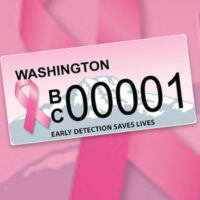Breast, Cervical, Colon Health
Insurance or no insurance, individuals may be eligible for financial help for cancer screening services.
Contact Us
- Phone 509.232.2983
- Toll Free 888.461.8876
- Fax 509.324.1599
Breast and Cervical Health Assistance in Washington State
When a person is in need of cancer screening, they should not have to worry about how to pay for care. As a Washington state resident, you may be eligible for free breast and cervical cancer screening and diagnostic services through Washington state’s Breast, Cervical and Colon Health Program (BCCHP) program.
For Existing Clients
As of June 2022, Spokane Regional Health District (SRHD) no longer administers these services in the eight-county region previously served by SRHD. If you are an existing client, your services have been transitioned to the Yakima Health District. You should not experience any lapse in coverage or services.
For a referral to a clinic near you or for more information, call the Yakima Health District:
- Cathy – 509.249.6537 (habla español)
- Emma- 509.249.6523 (habla español)
- Rose – 509.249.6529
- Toll free – 800.535.5016
Learn About Breast, Cervical and Colon Cancer

Breast Cancer License Plates
For purchase of specialized breast cancer license plates, contact the Department of Licensing for details. A portion of
the proceeds from license plate sales go toward free breast cancer screening
services, including mammograms and follow-up testing for eligible people with a
low income through the Department of Health's Breast, Cervical and Colon Health Program.
